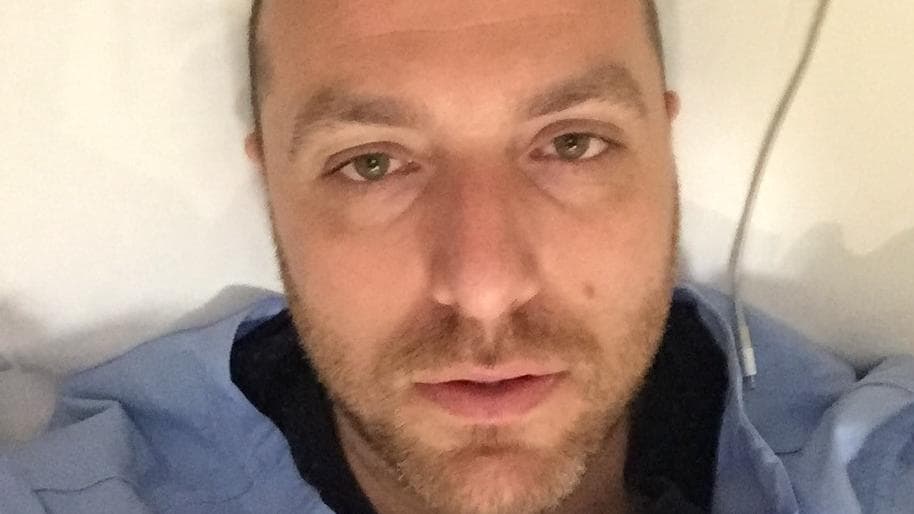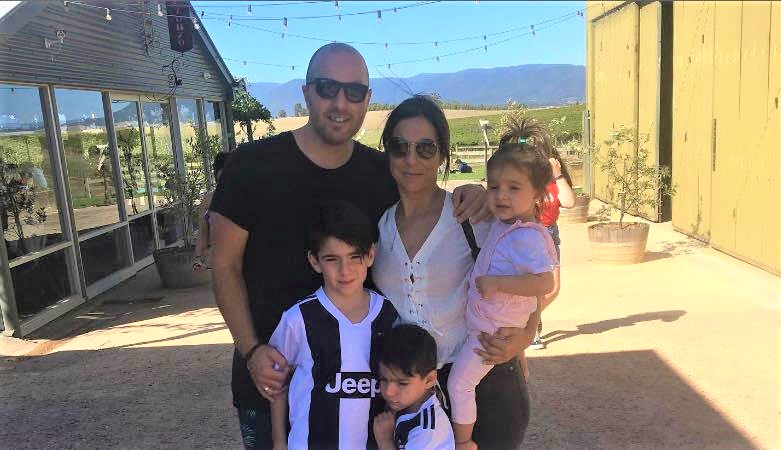Melbourne father of three, Nick Dimos, was recently diagnosed with life-changing Multiple Sclerosis (MS).
MS is an auto immune disease which means Nick’s immune system doesn’t just defend him from infections, it also attacks healthy cells. MS damages the protective coating on nerves in your brain and spine, causing lesions. Nick has more than 50. These distort messages from the brain to the rest of the body, sometimes leading to severe disability. Unfortunately, there’s no known cure.
“I just remember three neurologists sat my brother and my wife down and I just knew there was something wrong. They just sort of told us that ‘you’ve got MS.’ And it’s just alarm bells in the head going off and you’re just thinking to yourself, ‘there’s no cure for this and you’re just going to be left in a wheelchair’,” Nick told SBS Dateline in a special report.
“I remember screaming so loud outside the front of Box Hill hospital,” his wife Nektaria added.

Since then, Nick’s been plagued by fatigue, migraines, blurred vision, pain and numbness in his legs. And dread about what still lies in store.
But the pair never gave up. After doing some research, they came across stem cell transplants known as HSCT, which halt the progression of MS in about 80 to 90 percent of cases like Nick’s.
These transplants have been very successful in clinical trials, especially for young patients with relapsing-remitting MS. But the treatment isn’t widely available anywhere in the world and as a result, Nick plans to fly to Moscow to receive the treatment. He says that although his current neurologist supports his plans to seek treatment abroad, most are dismissive.
“So I spoke to many, I guess, of my previous MS neurologists about HSCT. They were all against it. Some of the feedback I was getting was ‘no it’s not proven,’ ‘it’s still being tested,’ ‘don’t do it, it’s going to kill you’,” Nick said.
Sadly, since then, COVID-19 broke out around the world and Nick’s plan to go to Moscow for treatment has been put on hold. This is something which has rightly angered Nick as he questions why he even has to travel outside of Australia to receive the transplant in the first place.
In Australia, clinical trials for stem cell transplants only accept people who failed to respond to multiple drug treatments. Nick has already tried and failed MS drug, Aubagio, but he’s still been told he doesn’t qualify for the clinical trial because he hasn’t tried and failed at least one other drug.
“I jumped onto an MS drug called Aubagio. I was taking Aubagio tablets every single day for up to 12 months. But they obviously didn’t work for me. The lesions continued,” Nick told the media program.

“But we were still told I didn’t qualify for the clinical trial here in Australia, which just leave us dumbfounded. Why on earth am I meant to be trying MS drugs? You want me to progress in a form of disability before you give me an opportunity to actually get my life back. It makes no sense whatsoever.
“I guess we’re just frustrated. Frustrated that they’ve been doing a trial in Australia since 2012 and they don’t allow MS patients to jump onto this and reap the benefits of it and force us to go abroad for treatment.”
Nick says Australia needs to give people with MS a “real option to actually get their lives back” but until then, he’s still determined to travel to Moscow once travel restrictions ease.
“There is no cure as yet and I wish one day there will be for MS patients. But right now, the best course of treatment is HSCT so Australia really needs to pull their finger out and give that option to Aussies. Don’t force us abroad.”
